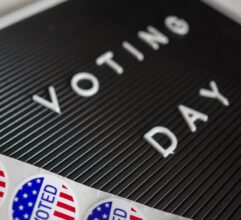The election of Seth Low to the Mayor’s Office convinced Citizens Union that it wanted no part of dealing with party patronage, engrained in the politics of the time. Citizens Union changes its purpose from a political party to an independent, non-partisan force for good government.
1897 - Citizens Union is founded as a nonpartisan political party to defeat the Tammany Hall machine
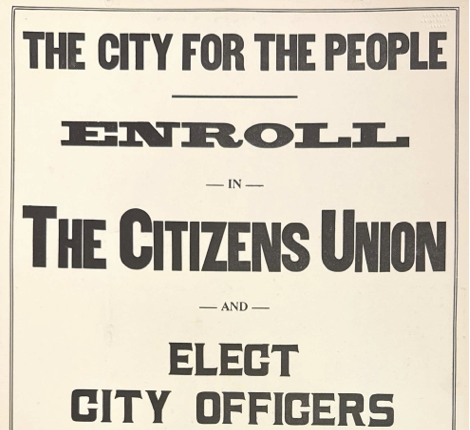
Citizens Union is founded as an independent political party, unaligned with either the Democratic or Republican Party, emphasizing New York City concerns. The founders include civic-minded New Yorkers determined to fight Tammany Hall’s corrupt political machine, including J. Pierpont Morgan, Benjamin Altman, James A. Roosevelt and Carl Schurz in addition to citizens who represent a diverse cross-section of the economic and social fabric of the city.
1901 - Seth Low, Citizens Union's mayoral candidate, is elected mayor
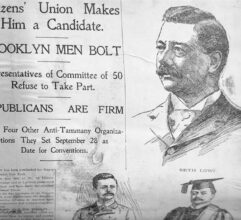
Set Low was the mayor of Brooklyn from 1881 to 1885 and the president of Columbia University from 1890 to 1901. In 1897, while president of Columbia University, he became the Citizens’ Union candidate for Mayor of the new, consolidated City of New York, but was defeated. In 1901, he was again nominated under the banner of Citizens Union to the office of Mayor, and won as a fusion candidate. His victory marked the defeat of the Tammany Hall political machine, inaugurating a brief period of reform.
1908 - Citizens Union shifts from political party to nonpartisan good government group to avoid patronage
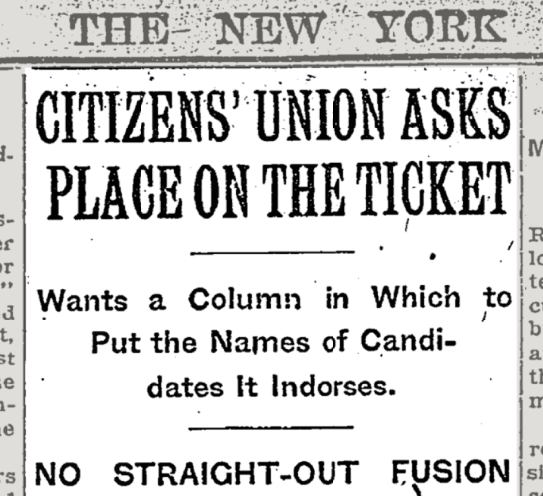
1910 - First Voters Directory published to guide New Yorkers on candidates for elected office
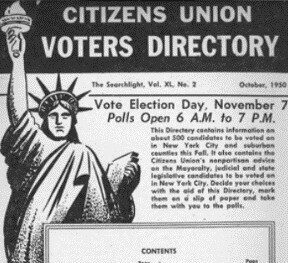
Citizens Union published its first Voters Directory in 1910. Its description of municipal candidates up and down the ballot and their qualifications—usually based on interviews with them—is regarded as a model for informing the electorate on its choices. For decades, the Voters Directory was the most comprehensive publication of its kind, a preferred reference for journalists, civic activists and voters alike.
1914 - Citizens Union wins reforms requiring voter signature to protect election integrity
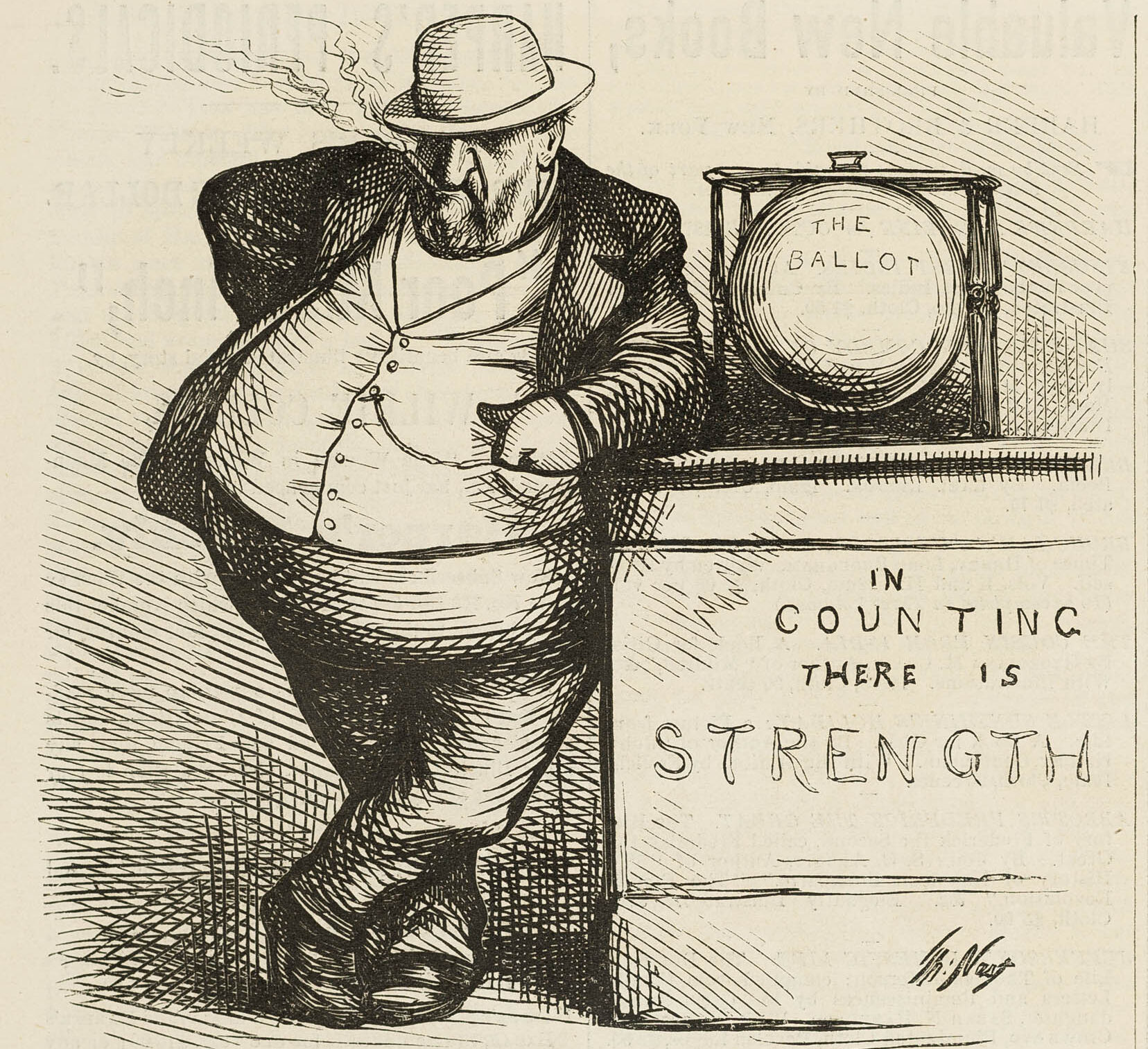
Citizens Union secures the integrity of elections, elevates voter participation and greatly diminishes corrupt practices at polling places by leading the successful battle to make New Yorkers’ signatures permanent proof of registration for voter identification, and instituting signature identification of voters at the polls.
1915 - Slate voting reversed; Citizens Union enables voters to choose candidates across parties
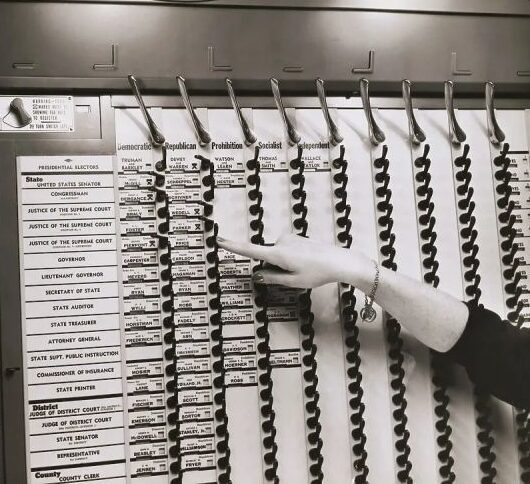
Citizens Union opposed slate voting, which required voters to vote down party line on the ballot. In 1915, Citizens Union managed to reverse slate voting for the first time, giving New Yorkers the choice of splitting their ticket in favor of any candidate from different political parties on the ballot.
1923 - Home rule for NYC achieved, giving local power thanks to Citizens Union’s advocacy
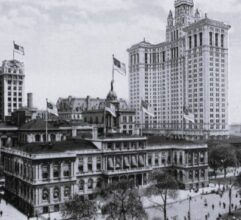
Through the efforts of Citizens Union, the earliest form of home rule is enacted in New York City, freeing the municipality from total control by state government in Albany and providing the City with the right of local law on certain domestic matters. The tension between state and city government on certain issues, however, continues to produce conflict and controversy.
1924 - Citizens Union leads successful fight against subway development through Central Park

In a major civic victory, Citizens Union leads the successful campaign to prevent subway lines from being routed under Central Park. That so wrongheaded a proposal even surfaced underscored the value of the leading “good government” group’s defense of New York’s best interests.
1933 - Fiorello LaGuardia, endorsed by CU, is elected Mayor to reform and fight Tammany control
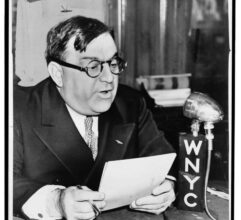
To break Tammany Hall’s grip on government Citizens Union endorses Fusion candidate Fiorello H. LaGuardia, a member of the House of Representatives who had the Republican Party line. LaGuardia won and enjoyed a productive relationship with Democratic President Franklin D. Roosevelt during the Great Depression, completing enduring public works in transit, public housing, school construction and other essential infrastructure assets. His mayoralty was emblematic of Citizens Union’s ideals for non-partisan, professionally staffed, corruption-free government. “Those now in control of the City Government strive to maintain it primarily to provide security and luxury for the overseers of the Tammany vineyard. Mr. LaGuardia has no sympathy for that point of view. His hatred of political parasites is deep-seated,” asserts the Voters Directory.
1936 - Citizens Union helps secure proportional representation for City Council elections
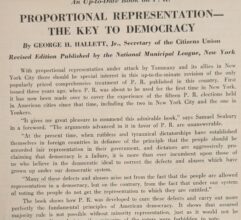
Adoption of proportional representation to elect members of the City Council is enacted largely as a result of Citizens Union’s advocacy and leadership
1938 - The Times praises CU as a trusted, constructive civic force in NYC politics
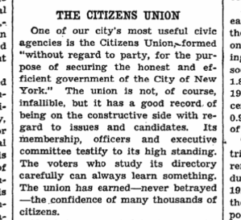
In a rare expression of praise for a civic actor, The New York Times singles Citizens Union out for being “One of our city’s most useful civic agencies,” stresses its “good record of being on the constructive side with regard to issues and candidates,” and finding that “The union has earned—never betrayed—the confidence of many thousands of citizens.”
1946 - CU leads campaign for Port Authority Bus Terminal to reduce traffic and pollution.
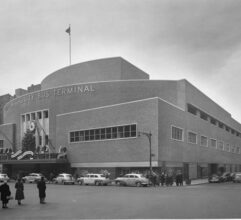
The efforts by Citizens Union makes possible the building of the Port Authority Bus Terminal in order to centralize the scores of commuter buses on the streets, alleviate traffic congestion and reduce pollution.
1948 - CU helps create NYC’s Air Pollution Control Dept., earning praise from the New York Times for its leadership.
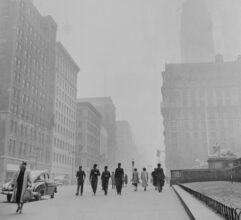
By capitalizing on recent victories on environmental issues, Citizens Union facilitates the establishment of a city Department on Air Pollution Control. This earns praise from the New York Times which states, “The Citizens Union has now decided to take the lead in seeing that something is done about air pollution. The movement could not have a more knowledgeable or energetic sponsor.”
1948 - Citizens Union Foundation is founded to conduct nonpartisan research and advocate for long-term policy solutions.
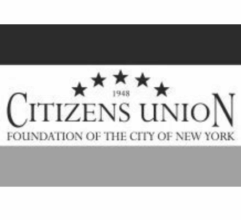
Citizens Union Foundation is founded as the nonprofit research, education and advocacy organization focusing on long-range analyses and non-partisan studies of public policy issues.
1952 - Chair Milton Bergerman launches “Searchlight” program on radio and TV into the 1990s.
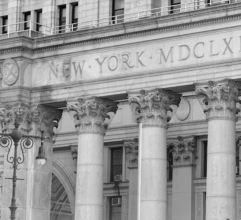
Milton Bergerman, Citizens Union Chair, launches a radio and later television program, Citizens Union Searchlight. The program first airs on WNBC and later NY1 and continues into the 1990s.
1953 - The New Yorker profiles CU as a tireless civic watchdog doing vital but overlooked work.
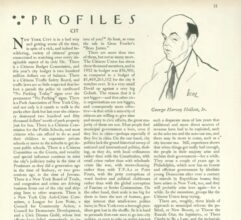
On August 22nd, The New Yorker profiles Citizens Union as “like a good housekeeper who is unendingly mopping out dark corners, sweeping under sofas, mending and darning and patching…. It is unfortunate that most citizens find little drama in this sort of work, since, as every housekeeper knows, many small chores can add up to a big result.”
1957 - CU wins repeal of law requiring voter re-registration before every election.

After 20 years of advocacy by Citizens Union, permanent personal registration becomes law; overturning a requirement that all eligible voters have to re-register before each and every election.
1959 - CU leads effort that results in Robert Moses' resignation from city posts.
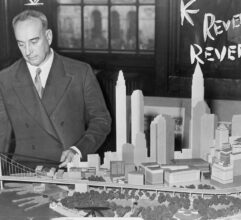
Citizens Union leads citizens’ effort to remove one of its former leading members, Robert Moses, from public office in light of his increasing cronyism and autocratic approach, resulting in Moses’ resignation from all city posts, including City Parks Commissioner.
1963 - Community boards created after CU advocates for local districts and greater citizen input
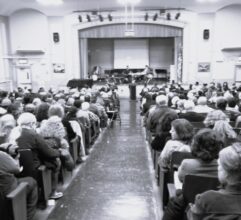
16 years after Citizen Union proposes the creation of local districts to provide for citizen participation, the 1963 City Charter revision established “Community Planning Boards” throughout New York City – later known as “Community Boards.” Image: Wikimedia: Beyond My Ken
1965 - John Lindsay elected Mayor; praises CU as a pioneer of citizen action.
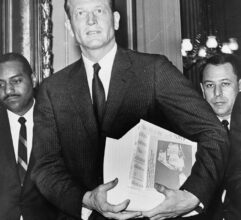
John V. Lindsay is preferred by Citizens Union and elected Mayor. He said, “Citizens Union has been a pioneer in the field of citizen action.”
1970 - Proportional representation elections for community school boards begin after years-long CU-led campaign

Citizens Union’s long-time leader George Hallett led the winning campaign to institute a proportional representation election system for community school boards in New York City, with the first election held in 1970. Proportional Representation, a multi-member election system, allows for more minority voices to be heard, and led to diverse school boards in the city, The system lasted over 30 years, until the school system moved from state control to mayoral control in 2002.
1977 - Election of judges to the New York's highest court replaced with a merit selection system, a long-time CU goal
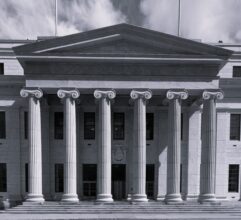
Citizens Union played an active part in developing and advocating for eliminating the election of New York Court of Appeals judges and replacing it with a merit selection system. In 1977, a constitutional amendment creating a judicial nominating commission and establishing its process for selecting Court of Appeals judges was approved by voters.
1982 - CU challenge to racially biased City Council districts is upheld by the DOJ.

Citizens Union challenges the district lines drawn by the City Council as racially discriminatory. The US Department of Justice upholds the challenge.
1983 - CU files amicus brief against the undemocratic Board of Estimate

Citizens Union filed the first of many amicus briefs in the case challenging the constitutionality of the Board of Estimate, a governing body argued by CU as being “undemocratic, unresponsive and unrepresentative.”
1986 - CU publishes Thirsty City and a plan to improve NYC’s water supply
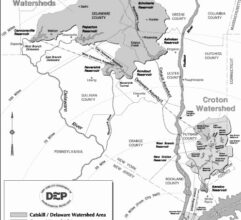
Citizens Union adopts a “Plan of Action for the New York City Water Supply,” and publishes the comprehensive report, Thirsty City
1987 - CU helps defeat weak ethics bill and backs a stronger Conflict of Interest Board.

The state legislature passes woefully inadequate ethics reform, but at the urging of Citizens Union and other civic organizations, Governor Cuomo vetoes the bill forcing the legislature to revisit the issue and draft a tougher law. The following year, in the City, a Charter proposal is adopted creating a stronger Conflict of Interest Board supported by Citizens Union.
1988 - CU’s decades-long push ends in Board of Estimate being declared unconstitutional by Supreme Court
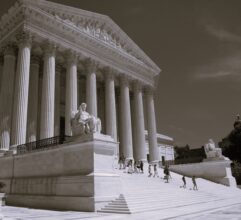
The United States Supreme Court declares the Board of Estimate to be in violation of the Constitution’s one person — one vote principle — leading to the modification of the City Charter and the abolishment of the Board of Estimate. Citizens Union argued for decades that the Board of Estimate was “undemocratic and unresponsive.”
1989 - Citizens Union Foundation begins publishing Searchlight on the City Council guide

Citizens Union Foundation begins monitoring the New York City Council and henceforth publishes Searchlight on the City Council, a comprehensive guide to the city’s legislative body and its actions.
1996 - CU lawsuit leads to creation of NYC Independent Budget Office after long delay.

Based on the legal suit by Citizens Union and a number of civic organizations against the Mayor and the City Council, the Independent Budget Office is finally established after five previously ignored court orders.
1999 - CU Foundation launches GothamGazette.com, winning journalism awards for coverage
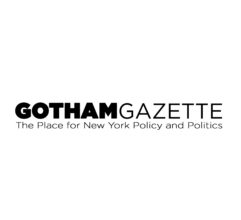
Citizens Union Foundation launches GothamGazette.com, a daily website of news and policy issues facing New York City. Since its launch, Gotham Gazette wins accolades and numerous awards, including the prestigious Online Journalism Award for General Excellence.
2001 - After 9/11, CU joins Civic Alliance; Gotham Gazette covers rebuilding NYC.

Following the September 11th attacks, Gotham Gazette launches, Rebuilding New York, a section of the Web site that provides comprehensive coverage of the planning for the World Trade Center site. Citizens Union joins the Civic Alliance to ensure civic participation in the rebuilding effort.
2001 - CUF launches first poll worker recruitment program to help facilitate election administration
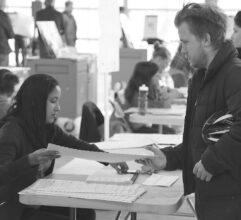
In response to the imminent need for poll workers by the Board of Elections to staff polling sites on Election Day, Citizens Union Foundation launches the first poll worker recruitment efforts to help facilitate election administration.
2002 - CU hosts forums to brief 34 new Council Members on key policy issues.

With the enactment of term limits and subsequent election of an unprecedented 34 new City Council Members, Citizens Union hosts Issue Study Forums to educate and engage the incoming freshman council members.
2004 - CU report critiques West Side project and unaccountable public authorities

Citizens Union Foundation publishes a comprehensive report on the proposed development of Manhattan’s Westside that is critical of the closed process in which the decision is being made. It argues that such huge public investment decisions should be made by legislative bodies, not by unaccountable public authorities.
2004 - CU helps to pass NYC's Young Adult Voter Registration Act

Citizens Union helps to draft and advocates for the Young Adult Voter Registration Act, which passes the City Council unanimously.
2004 - CU's new criteria for supporting candidates help create a climate of reform in Albany
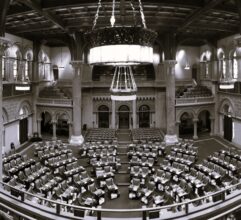
Citizens Union changes the measures by which it evaluates candidates for state legislature and pushes candidates to support an agenda of broad reform in the State Capitol, helping to create a political climate of needed change in Albany.
2006 - CU evaluates statewide races the first time
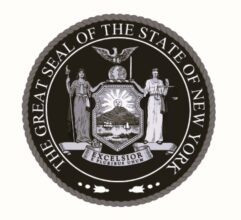
Citizens Union evaluates statewide candidates for the first time in its history, issuing recommendations for Governor, Attorney General, and State Comptroller.
Citizens Union’s report on the political consulting and lobbying nexus ignites a reform effort prompting Mayor Bloomberg and Council Speaker Quinn to enact a law increasing disclosure and strengthening enforcement of lobbying activity.
2007 - CU wins pay-to-play reform in NYC’s campaign finance system.
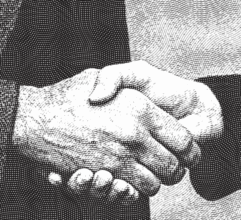
New York City’s heralded campaign finance program is strengthened with the historic restriction of pay to play contributions from those who do business with the city after years of Citizens Union advocating for such needed change.
2008 - CU opposes Council-led term limits extension; calls for a public vote instead.
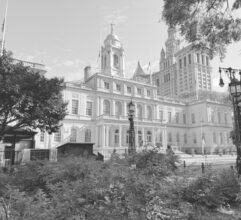
Strongly opposes City Council legislative action initiated by Mayor Bloomberg to extend term limits and supports instead a voter referendum. The legislation led to the most divisive Council vote in years with 22 members opposing the action.
2009 - CU supports Governor’s appointment of Lieutenant Governor to break Senate deadlock.
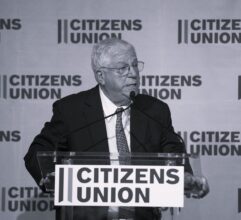
Proposes and publicly sanctions the Governor’s authority to appoint a Lieutenant Governor, effectively breaking a paralyzing Senate deadlock. Files supportive amicus brief which receives a favorable ruling by the Court of Appeals, confirming Governor Paterson’s authority to act and CU’s position.
2010 - Historic redistricting reform clears two committees; all gubernatorial candidates vow to veto legislature-drawn district lines
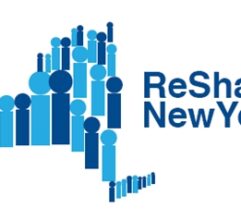
For the first time in history, meaningful redistricting reform law advances through two legislative committees. Citizens Union also secures unprecedented support from all gubernatorial candidates to veto any lines drawn by legislature.
2010 - Seminal report on needed NYC Charter revisions to increase public participation
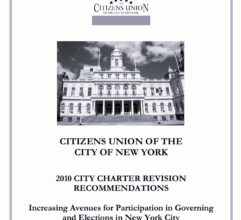
Citizens Union releases widely heralded report recommending NYC Charter changes to increase avenues for public participation in governing and elections.
2011 - New York enacts historic ethics reforms after CU advocacy and reporting on misconduct

New York State enacts historic ethics reform, pressured by Citizens Union’s relentless advocacy and reports detailing the rise of ethical misconduct in Albany.
2012 - CU’s advocacy shifts police misconduct prosecutions to the Civilian Complaint Review Board in NYC.

Citizens Union’s advocacy leads to the transfer of prosecutorial powers against police misconduct in New York City to the Civilian Complaint Review Board.
2012 - CU helps pass a constitutional amendment to end partisan gerrymandering in New York starting in 2022.
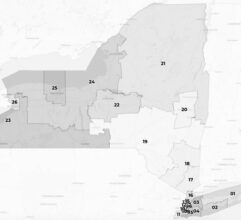
Broad-based campaign results in first passage of a constitutional amendment to effectively end partisan gerrymandering in 2022 at the state level.
2013 - CU-backed reforms improve efficiency of reporting election night results.

The legislature passed a bill streamlining procedures for closing the polls on election night so that unofficial election night results are reported more efficiently and quickly, marking the culmination of a year long advocacy campaign.
2014 - CU champions Prop 1, ending unchecked redistricting power of state legislators.
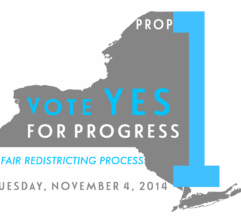
Citizens Union championed redistricting reform with passage of Prop 1, a constitutional amendment that stripped legislators of their unchecked power to draw their own district lines by establishing a politically balanced commission.
2015 - CU wins state reforms on outside income, travel claims, and campaign spending ethics.

Affecting state lawmakers’ ethics, CU achieves greater disclosure of amount and source of outside income, better verification of travel reimbursements, and modest restrictions on the use of campaign funds.
2017 - CU Leads Campaign for a State Constitutional Convention
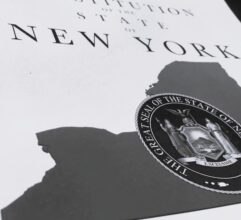
Every 20 years, New Yorkers can vote on whether to hold a constitutional convention, which would allow the voting public to amend our state’s constitution. Citizens Union, together with other civic groups like the Committee for a Constitutional Convention, Forward March NY, and New Kings Democrats, led the campaign to support a New York State Constitutional Convention, seeking to get big money out of politics, ensure fair elections and give all New Yorkers a stronger voice in State Government.
2019 - Ranked Choice Voting passes in a voter referendum
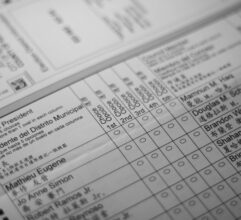
2019 - New York State passes long-supported CU-backed election reforms, including Early Voting, Automatic Voter Registration, and pre-registration
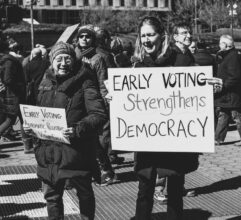
2020 - Citizens Union wins historic lawsuit against the State and Governor Cuomo, repealing a law designed to chill free speech
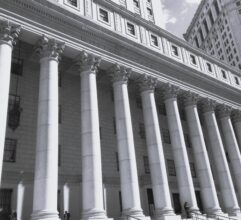
Citizens Union wins historic federal lawsuit against State Of New York and Governor Cuomo, repealing a law designed to chill free speech. The State law required public disclosure of donors whose nonpolitical charitable giving was kept private under IRS rules and protected by the First Amendment of the U.S. Constitution. Photo: Wikimedia, aismallard
2021 - CU launches ElectNYC, digital info hub and education campaign on the historic 2021 municipal election
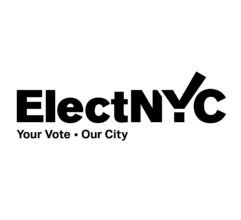
CU launches ElectNYC 2021, a digital info hub supported by the Ford Foundation, offering over 400 candidate biographies and explainers to help voters navigate the largest municipal election cycle in a generation.
2022 - CU’s NYC redistricting community training program sparks record civic participation
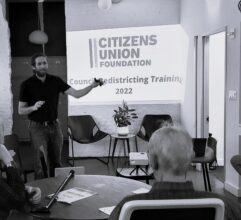
CU’s redistricting community program trains 1,700+ New Yorkers to testify before the NYC Districting Commission and advocate for fair Council maps, resulting in record civic participation in the redistricting process.
2022 - Improved state ethics watchdog replaces politically-controlled JCOPE
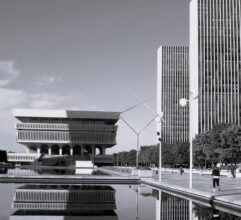
Following years of opposition to the politically-controlled Joint Commission for Public Ethics (JCOPE) from Citizens Union and other groups, Governor Kathy Hochul pushes legislation to establish a new, more independent state ethics oversight body, the Commission on Ethics and Lobbying in Government (COELIG). Image Wally Gobetz/Flickr
2023 - Following landmark report on election timing, New York moves county and town elections to even years
